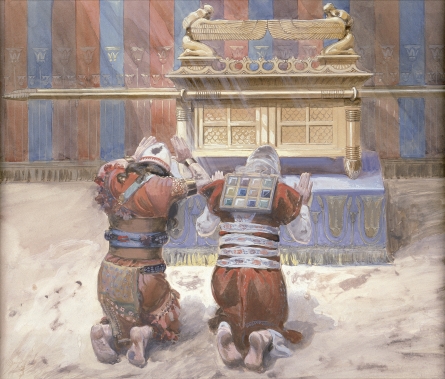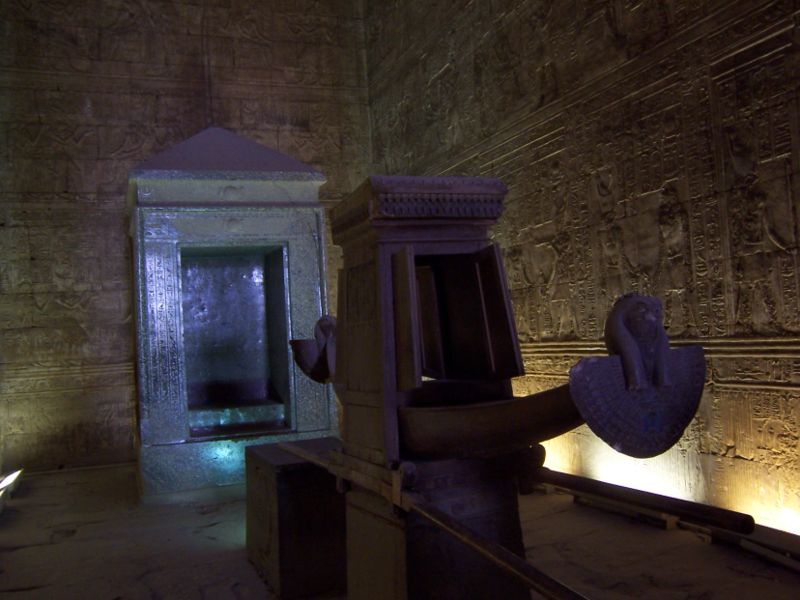Feedback archive → Feedback 2021
Does the Ark of the Covenant have Egyptian influences?
US enquirer asks if the Ark of the Covenant, has Egyptian influences in its design?
An enquirer (name removed) from the US wrote into CMI with a question about the Ark of the Covenant—does it have Egyptian influences in its design? Gavin Cox responds.

Hi,
My husband is not a believer and every so often talks about things that I don’t know how to answer. He said that he read an article that said that historians should take the Bible more seriously from a historical standpoint but that the Ark of the Covenant that the Israelites had was based on Egyptian religious artefacts, and the temples as well. I found this article but I don’t know how to respond to him.
[Noegel, S.B., The Egyptian Origin of the Ark of the Covenant in T.E. Levy et al. (eds.), Israel’s Exodus in Transdisciplinary Perspective, Springer, Switzerland, (pp. 223—242), 2015.
(Honestly I have not opened the article because I don’t want to have more questions). I told him that God told the Israelites to build the Ark the way it was built but he didn’t think God would tell them to build it like another religion’s. I couldn’t find answers online except that some of the Egyptian artefacts that I saw drawings of didn’t look the same. Can you help me?
Hi,
Many thanks for writing into CMI with your question, which was forwarded to me to respond to. Having studied these kinds of things during my two Masters degrees, one in biblical Studies, and the other in Egyptology, I found the article by Noegel (21 pages) a very interesting read, although I didn’t agree with the overall perspective of the paper.
Firstly, I would like to offer my prayerful support in your witness to your unsaved husband, and that through your quiet, patient witness you will win him round to the Lord. May the Lord grant you wisdom in responding to his questions, and how to answer (1 Corinthians 7:14–16).
To your question, regarding whether the Ark of the Covenant had Egyptian influences, I would respond, “sure, why not?” We read that “Moses was instructed in all the wisdom of the Egyptians, and he was mighty in his words and deeds” (Acts 7:22). God would have used Moses’ skill-set to enable/ manage all the construction of the various items of Israel’s worship. Such observations made by scholars (such as Noegel) only enhances the genuine historical links of Israel in Egypt (it is the view of many in CMI that the 430 years is calculated from Abraham’s entry). The historical understanding of Genesis is under constant attack by liberal scholars. These liberal scholars believe Israel was never in Egypt, and that Israel made up their foundational history while in exile in Babylon. Liberal scholars even question the very existence of Moses. They also pose that Israelites were originally off-shoots of the Canaanites, and for some reason made themselves distinct from the Canaanites in their beliefs and practices. This of course is all based on speculation, and not from reading the Bible, or taking it seriously as an historically accurate document.
Bible not written in a historic or cultural vacuum
Interestingly, when the Bible spoke about the Hittite Empire, skeptics claimed the Bible was wrong as there had been no archaeological evidence discovered about this group. But now there is abundant evidence from discovered Hittite treaties (Hittites were an Anatolian people who played an important role in establishing an empire centred on Hattusa in north-central Anatolia around 1680-1650 BC) that also demonstrate strong parallels with Moses writings. It is also known that the Egyptians were making treaties with the Hittites (around the biblical time of Moses) and used the very distinctive Hittite treaty structure within their documents. This closely parallels the structure of the Law sections of the Pentateuch. Again, this kind of evidence places the Bible in real history and at the right time, and under one authorship, meaning it was not written in a historic or cultural vacuum. I can recommend the article Archaeologist confirms creation and the Bible Interview with archaeologist Dr Clifford Wilson that mentions some of these ideas (see also the links at the bottom of the article, and CMI media that further adds useful information to this discussion).
Another essential aspect to bear in mind is that the entire Exodus episode, as well as to rescue God’s people from Egypt was to, as the Lord Himself stated: “on all the gods of Egypt I will execute judgments: I am the LORD” (Exodus 12:12). I can recommend this article: The ten plagues of Egypt Miracles or ‘Mother Nature’? especially the section “Yahweh 10 Egyptian deities 0” which identifies each plague as defeating specific Egyptian gods.
The Ark as a theological depiction of God’s presence

So, it would make sense that if the Egyptians saw the Ark then it would speak to them of the true God’s presence. Noegel in his article (along with other scholars) suggest the Ark was modelled after the Egyptian bark-shrine, or ceremonial Egyptian boat. This was usually carried by priests using poles on their shoulders, the bark received written covenant oaths, and upon the bark stood a statue of a god, often Osiris. However, the important distinction here being that the Ark of the Covenant didn’t have a depiction of Yahweh, as He could not be depicted as a graven image (as in the first Commandment, Exodus 20:4–5; cf. Deuteronomy 4:15–20). The covering lid (with the two covering cherubs) would therefore have acted as the footstool to the invisible God.
What would strengthen the scholars’ arguments for the Egyptian prototype to the Ark of course would be if the Ark of the Covenant was processed out of Egypt during the Exodus and across the Red Sea. But we only read of its construction after these events, when the tabernacle and other items were constructed in the wilderness, after Israel received the Ten Commandments during their sojourn at Sinai (Exodus 25). So, primarily, the Ark must have spoken to the Israelites who had been born and lived in Egypt who were alive at the time of the Exodus. It was primarily to them as a witness of God’s presence going with them. Also, they would have recognized the Ark’s purpose and meaning from their own understanding of Egyptian life that they saw all the time around them. So the Israelites would have been reminded that God’s presence went with them, but was not visibly manifested in an image made of stone, which would be idolatry. The absence of a graven image of God reminded them that He could not be depicted this way—He is the Creator of all things and so cannot be depicted as a created object.
Certainly the Canaanites would have also recognized what the Ark represented, as they themselves were somewhat Egyptianized in their culture (as Noegel’s paper points out). So when they saw the Ark crossing the Jordan (Joshua 3) which stopped flowing, or processing around Jericho before its walls collapsed (Joshua 6), they would have recognized the Hebrew God was marching in victory with the Israelites who had come out of Egypt. The Bible is replete with references to the fact that God led Israel out of Egypt (Exodus 20:2; Amos 3:1; Psalm 80:8, and multiple references in the New Testament.) So when the Israelites saw the Ark, they would have been reminded of this real history.
A good question deserves a good answer
So your answer to your husband “I told him that God told the Israelites to build the Ark the way it was built” can with no problem take into account the Egyptian history that is genuine to that period of time the Bible is describing. You also state that your husband “didn’t think God would tell them to build it like another religion’s”. While this is true, I think the Ark both serves as a culturally relevant reminder to both Egyptians, Israelites, and Canaanites, that the true God of Creation went before Israel. It is actually strong evidence that the Exodus story is true in that the Hebrews came out of Egypt. But note that God could not be depicted as a man-made statue. In that sense, the Ark serves as a polemic (critique) against both Egyptian and Canaanite idolatrous practices.
Hope that helps,
Sincerely yours,
Gavin








Readers’ comments
Comments are automatically closed 14 days after publication.